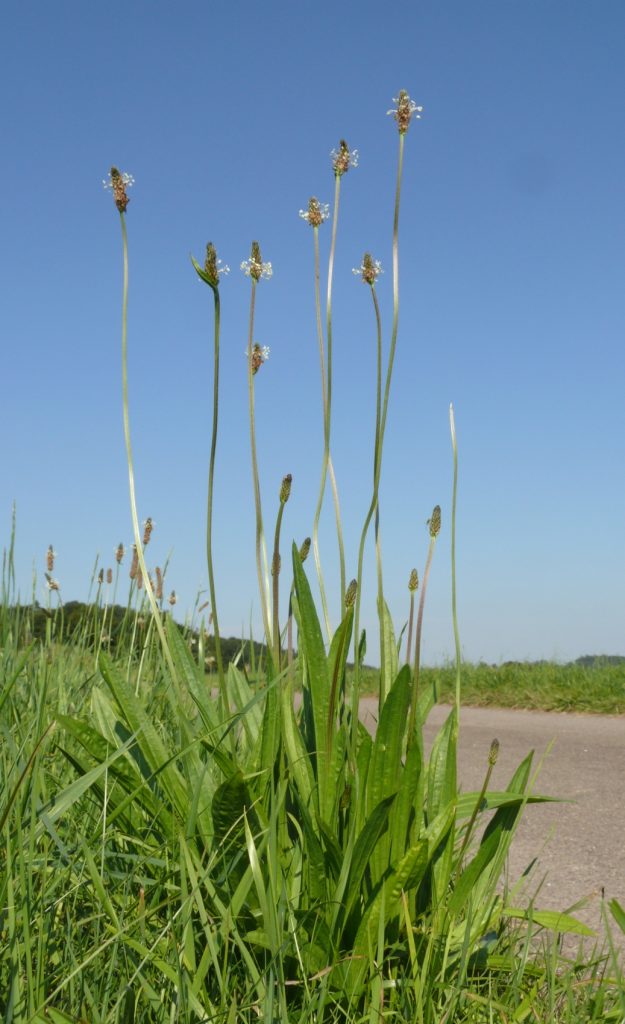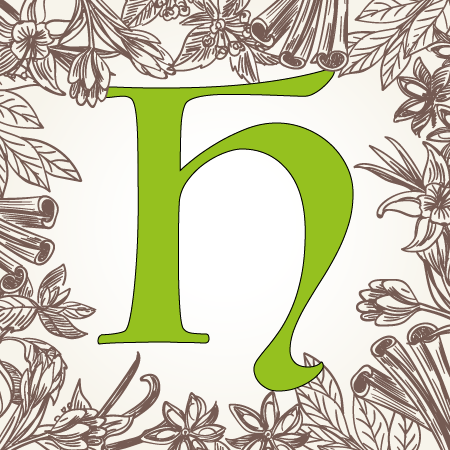Medical Research Confirms Health Benefits of Plantain Herb
The herb Plantago lanceolata, a species of flowering plant known by many names around the world, including buckhorn, English plantain and lamb’s tongue, is a traditional remedy that has been used for thousands of years. Recent medical studies (see below) have confirmed it to be effective and it is now recommended for the treatment of, among other ailments, bronchial congestion, bronchitis, colds, coughs, fever and soreness of the breathing passages and throat.

https://commons.wikimedia.org/wiki/File:Plantago_lanceolata_040807.jpg
One of the most comprehensive reviews of the numerous health benefits of this herb is the European Medicines Agency’s Committee on Herbal Medicinal Products (HMPC) Assessment report on Plantago lanceolata L., folium(1)published in 2011. The EMA committee listed 118 references(2) supporting its assessment. Among these studies, the report cites at length a research paper by Kraft(3) on the efficacy and safety of a cough syrup containing fluid extract from Plantago lanceolata administered to 593 patients (average age 42 years, range 1-88 years). The main diagnoses were acute respiratory infections (32% of the patients), acute bronchitis (28%) and irritative cough following acute respiratory infections (18%).
After 3-14 days of treatment, the intensity and frequency of coughing was reduced by 67% and 66%, respectively. Thoracic pain decreased by 80%, and irritative cough and dyspnoea by 69%. Subjective finding and general condition as assessed by the doctor improved by 43% and 37%, respectively. Global efficacy was assessed as good by the doctor in 62% of the patients, and as excellent by 26% of the patients. Moderate to insufficient efficacy was reported by about 13% of the patients, which was very similar to the doctor’s assessment.
A follow-up study by Kraft and Wegener(4) states that, because of its positive benefit-risk-ratio, Plantago lanceolata is recommended even for children for the treatment of moderate chronic irritative cough. No side effects have been reported in the literature.(1)Significantly, while the herb is used mainly in treatment of inflammation of the upper respiratory tract, the World Health Organization has, based on clinical data, recommended(5) the Plantago genus for use in reducing blood sugar that has increased after a meal, irritable bladder syndrome, diverticulitis, constipation caused by a duodenal ulcer, haemorrhoids, and to reduce the risk of coronary heart disease as an adjunct to diet in treating hypercholesterolemia. It is also known(6):
Significantly, while the herb is used mainly in treatment of inflammation of the upper respiratory tract, the World Health Organization has, based on clinical data, recommended(5) the Plantago genus for use in reducing blood sugar that has increased after a meal, irritable bladder syndrome, diverticulitis, constipation caused by a duodenal ulcer, haemorrhoids, and to reduce the risk of coronary heart disease as an adjunct to diet in treating hypercholesterolemia. It is also known(6):
- To accelerate skin regeneration,
- To have bactericidal and anti-diarrheal effects,
- To be useful against insect and snake bites, toothaches, or as an immunity enhancer,
- To selectively inhibit proliferation of CAL51 triple-negative breast cancer cells and to have a minor effect on the other breast cancer cell types studied.(7)
Dislaimer: The information provided in this release is for educational purposes only and does not substitute for professional medical advice. Results may vary from person to person. Consumers are advised to consult a medical professional or healthcare provider if seeking diagnoses or treatment. For maximum benefit, it is recommended that this product be consumed in conjunction with a healthy diet and exercise routine.
REFERENCES:
(3) Kraft, K. (1997). Therapeutisches Profil eines Spitzwegerichkraut-Fluidextraktes bei akuten respiratorischen Erkrankungen im Kindes- und Erwachsenenalter. In: Loew, D., Rietbrock, N. (eds) Phytopharmaka III. Steinkopff. https://doi.org/10.1007/978-3-642-95993-6_17
(4) Wegener T, Kraft K. Der Spitzwegerich (Plantago lanceolata L.): Reizlinderung bei Infektionen der oberen Atemwege [Plantain (Plantago lanceolata L.): anti-inflammatory action in upper respiratory tract infections]. Wien Med Wochenschr. 1999;149(8-10):211-6. German. PMID: 10483683.
(5) Haddadian, Katayoon & Zahmatkash, Mohsen. (2014). A review of Plantago plant. Indian Journal of Traditional Knowledge. 2014;13(4):681–5.
(6) Pol, Michal, Schmidtke, Knut and Lewandowska, Sylwia. “Plantago lanceolata – An overview of its agronomically and healing valuable features” Open Agriculture, vol. 6, no. 1, 2021, pp. 479-488. https://doi.org/10.1515/opag-2021-0035,/font>
(7) Alsaraf, K.M., Mohammad, M.H., Al-Shammari, A.M. et al. Selective cytotoxic effect of Plantago lanceolata L. against breast cancer cells. J Egypt Natl Canc Inst 31, 10 (2019). https://doi.org/10.1186/s43046-019-0010-3
